See The Ten Worst Foods for Prostate Health
Knowing these ten worst foods for prostate health will enable you to avoid prostate health issues since eating right is really important for keeping your prostate healthy and lowering the chances of having problems with it.
As men get older, their prostate naturally gets bigger. This can cause issues like swelling, trouble peeing, and even prostate cancer. What you eat affects how your body works, including your hormones, which can affect your prostate.
Here, we’re going to talk about ten foods you should stay away from if you want to keep your prostate in good shape. We’ll also discuss how eating foods that fight inflammation might help prevent prostate problems.
We’ll give you some tips on how to choose the right foods and live a healthy lifestyle to take care of your prostate.
What’s Prostate Health?
The prostate gland is super important for guys because it does a lot in the male body. It helps with making babies and peeing. This little gland, about the size of a walnut, hangs out just below the bladder and wraps around the tube that carries pee and sperm out of the body.
Why Prostate Health Matters
- Making babies: The prostate makes the stuff that helps sperm stay healthy and move around. So, if the prostate isn’t healthy, it can affect a guy’s ability to have kids.
- Peeing right: Since the prostate sits near the bladder and pee tube, if it’s not in good shape, it can mess with how guys pee. It might make it harder to go or cause some discomfort.
- Dealing with issues: Knowing about prostate health means understanding things like BPH, which is when the prostate grows too big and causes pee problems, and prostate cancer, a serious condition that needs attention.
- Feeling good: A happy prostate equals a happier you. When the prostate is healthy, it keeps you free from pain, discomfort, and stress, making life better all around.
Issues with the Prostate
As guys get older, their prostate can start acting up, causing some bothersome symptoms. Here are a few common problems:
- Prostatitis (Inflammation): When the prostate swells up, it can bring on pain, a fever, and make it tough to pee.
- Benign Prostatic Hyperplasia (BPH) – An Enlarged Prostate: This is when the gland grows bigger but isn’t cancerous. It can lead to needing to pee a lot, having a weak stream, and trouble fully emptying the bladder.
- Prostate Cancer: It’s one of the most widespread cancers among men globally. Sometimes, it shows up with symptoms similar to an enlarged prostate. Catching it early and getting the right treatment is crucial for a good outcome.
How Diet Affects Your Prostate
The food we eat has a big impact on how our bodies work. It can affect things like our hormones and how healthy our cells are. Understanding how different foods and nutrients affect the prostate can help us make smarter choices about what we eat to keep our prostate in good shape.
Dealing with Inflammation
Inflammation is the body’s way of responding to injury or infection. It’s a natural process meant to protect and heal, but when it sticks around too long, it can cause problems, including for the prostate.
Eating lots of refined carbs, unhealthy fats, and processed foods can make inflammation worse. On the flip side, chowing down on anti-inflammatory foods like fatty fish, berries, and green veggies might help calm inflammation and keep the prostate healthy.
But before we dive into the not-so-great foods, let’s talk about some nutrients that are great for prostate health.
Getting Antioxidants On Your Plate
Antioxidants are like the superheroes of the food world. They fight off harmful molecules called free radicals that can damage cells in the body. You can find antioxidants in loads of foods, especially fruits and veggies.
Eating foods rich in antioxidants might help shield your cells from damage and lower your risk of diseases like prostate cancer. Vitamin C and E, selenium, and lycopene are some antioxidants that are especially good for the prostate.
Lycopene
Lycopene is a powerful antioxidant found in fruits and veggies like tomatoes, watermelon, and pink grapefruit. Eating plenty of foods with lycopene has been linked to a lower risk of prostate cancer.
And here’s a fun fact: cooking tomatoes, like making tomato sauce, can actually boost the amount of lycopene your body can absorb.
Good Fats
Not all fats are bad for you—in fact, some are super important for staying healthy and keeping your hormones in check.
Opting for good fats like those found in avocados, nuts, and fatty fish, such as salmon, can give your body essential nutrients while steering clear of the risks associated with unhealthy fats.
Eating foods rich in omega-3 fatty acids, which are abundant in oily fish, might even lower your chances of developing prostate cancer, thanks to their anti-inflammatory powers.
Fiber Power
Fiber is like the unsung hero of healthy eating. It’s in whole grains, fruits, and veggies, and it does wonders for your digestion and keeping your weight in check.
Maintaining a healthy weight is linked to a lower risk of prostate problems, and high-fiber foods can help you feel full and keep your blood sugar levels steady, which in turn reduces overall inflammation.
H2O
Water is your prostate’s best friend. Staying hydrated helps flush out any pesky irritants and eases any discomfort your prostate might be feeling, especially if you’ve been indulging in spicy foods. So, keep sipping on that water to keep your prostate happy and healthy.
Top Ten Worst Foods for Prostate Health
Knowing what not to eat is just as important as knowing what to eat when it comes to keeping your prostate healthy. Here are the top ten worst foods for prostate health that men should think about cutting back on or avoiding altogether:
1. Processed Meats
Why They’re Bad:
- High Bad Fat: These meats are loaded with unhealthy fats that can cause inflammation, which isn’t good for your prostate.
- Sodium Overload: Processed meats are often packed with sodium, which can lead to high blood pressure and potentially harm the blood supply to your prostate.
- Preservatives: Nitrites and nitrates, used to preserve processed meats, can form harmful compounds in your body that are linked to prostate cancer.
- Cooking Concerns: When you cook processed meats at high temperatures, it can create cancer-causing substances like heterocyclic amines and polycyclic aromatic hydrocarbons.
Examples to Avoid:
- Hot dogs
- Bacon
- Sausages (like bratwurst, chorizo, and kielbasa)
- Salami
- Bologna
- Pepperoni
- Ham (especially heavily processed)
Health Risks:
- Increased Risk of Prostate Cancer
- Heart Health Concerns
- Inflammation
- Obesity
Cutting back on these processed meats can go a long way in keeping your prostate and overall health in tip-top shape.
2. Red Meat
Why It Might Be a Problem:
- Prostate Cancer Risk: Eating too much red meat, especially processed and well-done types, is linked to a higher chance of developing prostate cancer.
- Inflammation: Red meat, particularly when it’s high in unhealthy fats, can trigger inflammation in the body, which might not be great news for your prostate.
- Hormonal Effects: The hormones used in raising livestock could mess with male hormones, potentially impacting prostate health.
Types to Cut Back On:
- Processed Red Meat: Steer clear of processed options like bacon, sausages, hot dogs, and deli meats.
- Fatty Cuts: Scale back on high-fat cuts such as ribeye steak and T-bone steak.
- Well-Cooked or Charred Meat: When meat is cooked at high temperatures until it’s well-done or charred, it can contain substances like heterocyclic amines and polycyclic aromatic hydrocarbons, which are linked to cancer.
SEE ALSO: Ketogenic Diet for Schizophrenia
What Happens If You Overdo It:
- Increased Prostate Cancer Risk: Regularly chowing down on red meat might up your chances of prostate cancer.
- Prostate Inflammation: The unhealthy fats in red meat can stir up inflammation in your body, potentially affecting your prostate.
- Piling on Pounds: Eating too much red meat could lead to weight gain and obesity, which in turn could increase the risk of prostate problems.
By cutting back on red meat, especially the processed and fatty varieties, you could help keep your prostate in better shape and reduce your risk of prostate-related issues.
3. High-Fat Dairy Products
Why They’re Not Great:
- Inflammation: High-fat dairy products pack a punch of unhealthy fats, which can stir up inflammation throughout your body. Over time, this inflammation could irritate your prostate, upping the chances of prostate issues.
- Hormonal Effects: Some research suggests that loading up on unhealthy fats might mess with your hormone levels. This could mean boosting male hormones like testosterone. When testosterone levels rise, it could spur on the growth of prostate cells, increasing the risk of prostate problems.
Examples to Watch Out For:
- Whole Milk
- Cream
- Butter
- Certain Cheeses (like cheddar, Swiss, and brie)
How Saturated Fats in Dairy Can Mess with Your Prostate:
- Cell Growth: Consuming lots of unhealthy fats could crank up the levels of androgens like testosterone. This uptick in androgens might fuel the growth of prostate cells, potentially leading to prostate issues.
- Inflammation: Bad fats are notorious for causing inflammation in the body. Persistent inflammation can harm and irritate your prostate, boosting the odds of prostate problems.
- Risk of Obesity: Overindulging in high-fat dairy products might pack on the pounds, increasing the risk of obesity. And we know that being overweight is a known risk factor for prostate issues.
Cutting back on high-fat dairy products could help keep inflammation in check and reduce your risk of prostate-related problems down the line.
4. Sugary Beverages
Why They’re a Problem:
- Weight Gain: Sugary drinks pack in loads of calories but don’t make you feel full. This can lead to consuming more calories overall and gaining weight. Keeping your weight in check is crucial for lowering the risk of prostate issues.
- Inflammation: Too much sugar in your diet can trigger inflammation in your body. This inflammation can play a role in the development or worsening of prostate problems, including prostate cancer.
- Insulin Resistance: Sugary drinks can cause spikes in blood sugar levels and contribute to insulin resistance. This condition is linked to chronic inflammation, oxidative stress, and a higher risk of prostate problems.
Where to Watch Out for Added Sugars:
Be mindful of where those sneaky extra sugars hide, as they can be found not just in obviously sweet drinks, but also in seemingly healthier options. Common sources of added sugars in beverages include:
- Sodas and soft drinks
- Fruit juices
- Sports and energy drinks
- Sweetened teas
- Coffee and fancy coffee drinks
- Flavored water
- Alcoholic beverages, such as cocktails and mixed drinks
Cutting back on sugary drinks can help you maintain a healthy weight, reduce inflammation, and lower your risk of prostate-related issues in the long run.
5. Trans Fats
What They Are and Where to Spot Them:
Trans fats are a type of fat that forms through a process called hydrogenation, where hydrogen is added to liquid vegetable oils to make them solid.
They’re commonly found in many processed and packaged foods because they help extend shelf life, enhance flavor, and improve texture. You can come across trans fats in:
- Partially Hydrogenated Oils: These are used in lots of processed foods and are the main source of artificial trans fats. Look out for them in baked goods (like cookies, cakes, and pastries), fried foods (such as French fries and fried chicken), and certain margarines.
- Fast Food: Many fast-food joints use oils containing trans fats for frying. So, items like fries, chicken nuggets, and other fried treats may contain them.
- Packaged Snacks: Microwave popcorn, crackers, and chips can harbor trans fats because of the partially hydrogenated oils used in their production.
- Baked Goods: Factory-made pies, doughnuts, and various pastries often contain trans fats.
Why They’re Bad for Prostate Health (one of the ten worst foods for prostate health):
- Inflammation: Trans fats can spark inflammation in the body. Prolonged inflammation of the prostate may hike up the risk of prostate problems, including prostate cancer.
- Heart Health Concerns: Trans fats are strongly linked to heart disease and poor heart health, which could affect blood flow to the prostate and impair its function.
- Hormonal Imbalances: Trans fats might throw off hormone balance, including testosterone levels, potentially impacting the growth and activity of prostate cells.
How to Steer Clear of Trans Fats:
- Read Labels: Check the ingredient lists on packaged foods for “partially hydrogenated oils.” Even if a label claims “0 grams of trans fat,” the product might contain a small amount due to labeling regulations. Opt for products with no partially hydrogenated oils listed.
- Choose Whole Foods: Opt for whole, unprocessed foods that naturally have low levels of trans fats, rather than processed options that might be loaded with these unhealthy fats.
- Cut Back on Processed and Fast Foods: Limit your intake of processed and fast foods, which often harbor trans fats and could negatively impact prostate health.
Being mindful of trans fats in your diet can help keep your prostate and overall well-being in better shape.
6. Too Much Salt
The Downside of Excess Sodium:
Eating too much salt can spell trouble for prostate health in several ways:
- Blood Pressure: Overdoing it on salt can hike up your blood pressure, which might affect the blood flow to the prostate and hinder its proper functioning.
- Inflammation: A high intake of salt can trigger inflammation throughout your body, including in the prostate. This could up the risk of prostate problems, including prostate cancer.
- Kidney Function: Consuming excessive salt can put added strain on the kidneys, which are responsible for filtering waste from the body and maintaining electrolyte balance. This extra stress might impact overall metabolic health, including that of the prostate.
Where Salt Sneaks In:
Salt is a common ingredient in many foods and is often added during cooking or processing. Look out for these sources of too much salt in your diet:
- Processed and Packaged Foods: Many processed and packaged foods, like canned soups, sauces, and ready-to-eat meals, are loaded with salt for flavor and preservation.
- Fast Food: Burgers, fries, and fried chicken from fast-food joints often come with hefty doses of salt.
- Snack Foods: Salty snacks like chips, pretzels, and salted nuts can contribute to your salt intake.
- Condiments: Sauces and condiments such as ketchup, soy sauce, and salad dressings can contain high levels of salt.
Why Monitoring and Reducing Salt Intake Matters:
To keep your prostate and overall health in check, it’s crucial to watch and cut back on salt intake:
- Read Labels: Check food labels and opt for products that are lower in sodium.
- Cook at Home: Cooking your own meals allows you to control the amount of salt in your food and use other flavorings like herbs and spices.
- Limit Processed Foods: Cut back on processed and fast-food items, which are often loaded with salt.
- Stay Hydrated: Drinking plenty of water can help flush out any irritants and reduce discomfort.
Being mindful of your salt intake can help protect your prostate and promote overall well-being.
7. Refined Carbohydrates
How They Impact Prostate Health:
The connection between refined carbohydrates and prostate health stems from how these carbs can negatively affect overall health, potentially influencing the risk of prostate problems:
- Blood Sugar and Insulin: Refined carbohydrates are rapidly broken down, causing quick and significant spikes in blood sugar levels. This prompts the release of insulin to regulate the excess sugar. Over time, a diet high in refined carbs can lead to insulin resistance, where the body becomes less responsive to insulin. Insulin resistance is associated with chronic inflammation, oxidative stress, and an increased risk of prostate conditions.
- Hormone Regulation: The insulin response triggered by a high intake of refined carbohydrates can disrupt the balance of hormones in the body, impacting male hormones like testosterone. Imbalances in these sex hormones might stimulate the growth of prostate cells and contribute to prostate problems.
- Obesity: Refined carbohydrates often pack in lots of calories but lack fiber, leaving you feeling unsatisfied. This can lead to overeating and weight gain, which is linked to a higher risk of prostate problems.
Common Sources of Refined Carbohydrates:
Foods containing refined carbohydrates are typically processed and stripped of their natural fiber, vitamins, and minerals. Here are some common sources:
- White Bread: Traditional white bread is a prime example of a refined carbohydrate, made from heavily processed wheat flour.
- White Rice: The bran and germ are removed from white rice, leaving behind mostly starchy endosperm, making it a refined carbohydrate.
- Pasta: Many traditional pasta types are made from refined wheat flour.
- Baked Goods: Cakes, cookies, muffins, and pastries often contain refined carbohydrates from white flour and added sugars.
- Sugary Cereal: Breakfast cereals often contain refined carbohydrates due to added sugars and processed grains.
How They Can Harm Prostate Health:
Refined carbohydrates can negatively impact prostate health in several ways. As it is, it is one of the ten worst foods for prostate health:
- Blood Sugar Control: Frequent spikes in blood sugar from refined carbs can lead to insulin resistance, increasing the risk of prostate problems.
- Hormonal Imbalance: Insulin resistance and disruptions in sex hormones like testosterone may promote the growth of prostate cells, contributing to prostate issues.
- Obesity: Excessive consumption of refined carbohydrates can lead to weight gain and obesity, which are known risk factors for prostate problems.
Being mindful of your intake of refined carbohydrates can help support prostate health and overall well-being.
8. Artificial Sweeteners
The Potential Impact on Prostate Health:
While the exact effects of artificial sweeteners on prostate health are still being investigated, some research suggests a possible link between these sweeteners and prostate health. Here’s what we know so far:
- Hormonal Changes: Certain artificial sweeteners might disrupt the balance of hormones in the body. Changes in male hormones like testosterone could potentially influence prostate health and the development of prostate conditions.
- Metabolic Effects: Artificial sweeteners are often used as sugar substitutes in products marketed to those watching their weight or managing blood sugar levels. However, there’s some evidence to suggest that consuming artificial sweeteners might lead to metabolic changes, such as insulin resistance and glucose intolerance. These changes can impact overall health, including prostate health.
Commonly Used Artificial Sweeteners:
You’ll find various artificial sweeteners in many foods and beverages. Some of the most commonly used ones include:
- Aspartame
- Sucralose
- Saccharin
- Acesulfame Potassium (Ace-K)
- Stevia (a natural, zero-calorie sweetener)
While more research is needed to fully understand the effects of artificial sweeteners on prostate health, it’s wise to consume them in moderation and be mindful of their potential impact on overall health.
9. Spicy Foods
Prostate Irritation:
Spicy foods, especially when overindulged, can sometimes cause irritation to the prostate in certain individuals. This irritation may manifest as discomfort or a sudden urge to urinate.
While they aren’t a direct cause of prostate problems, it’s important to be aware of the potential discomfort they could bring to the urinary and prostate areas.
Managing Spicy Food Consumption
To savor the flavor of spicy foods while minimizing potential issues for those with sensitive prostates, consider these tips:
- Moderation: Enjoy spicy foods in moderation. Steer clear of excessively hot or spicy dishes if they tend to cause discomfort.
- Know Your Limit: Everyone’s tolerance for spice varies. Listen to your body’s cues and adjust the spice levels in your meals accordingly.
- Balanced Diet: Balance your consumption of spicy foods with nutrient-rich whole foods like fruits, vegetables, lean meats, and whole grains.
By enjoying spicy foods in moderation and being mindful of your body’s responses, you can still indulge in their flavors while keeping potential discomfort at bay.
10. Excessive Alcohol
Why It’s Not Ideal:
Drinking alcohol in excess can have negative implications for prostate health and as one of the ten worst foods for prostate health, it causes the following:
- Increased Urinary Frequency: Consuming too much alcohol can irritate the bladder and lead to more frequent urination, potentially causing discomfort.
- Dehydration: Alcohol is a diuretic, meaning it can increase urine production and lead to dehydration. Dehydration can exacerbate urinary symptoms and discomfort associated with prostate issues.
- Hormonal Imbalance: Chronic alcohol consumption can disrupt hormone levels in the body, including testosterone, which may contribute to prostate problems.
- Prostate Cancer Risk: Some studies suggest that heavy alcohol consumption may be linked to an increased risk of developing prostate cancer.
How to Moderate Alcohol Intake:
To promote prostate health and overall well-being, it’s important to moderate alcohol consumption:
- Limit Intake: Enjoy alcohol in moderation, sticking to recommended guidelines for safe consumption.
- Stay Hydrated: Drink plenty of water alongside alcohol to help mitigate its dehydrating effects.
- Know Your Limits: Be mindful of your body’s response to alcohol and avoid excessive drinking.
- Seek Support: If you find it challenging to moderate your alcohol intake, consider seeking support from a healthcare professional or support group.
By keeping alcohol consumption in check, you can help support your prostate health and reduce the risk of associated problems.

A graduate of Computer Science and Information Management Technology. Diploma – Caregiving, Certificates – Dementia and Diabetes Awareness and Management. A researcher, blogger, songwriter, singer and acoustic guitarist. Born in an environment where natural talents such as healing are imparted at our natural birth. This natural talents of healing is the result of our genetic inheritance and the training from family environment.

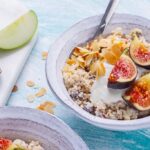
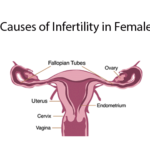



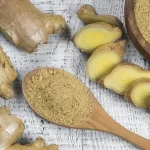
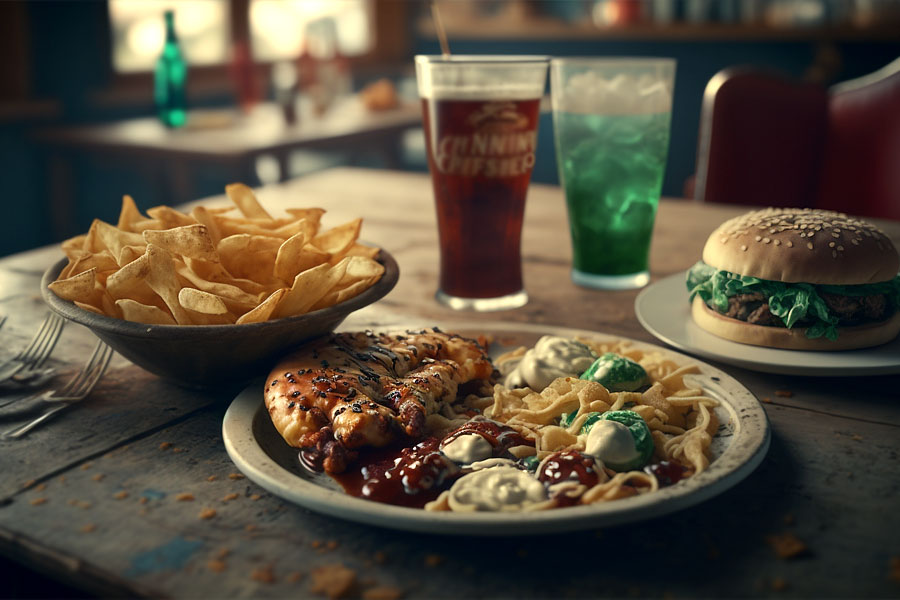








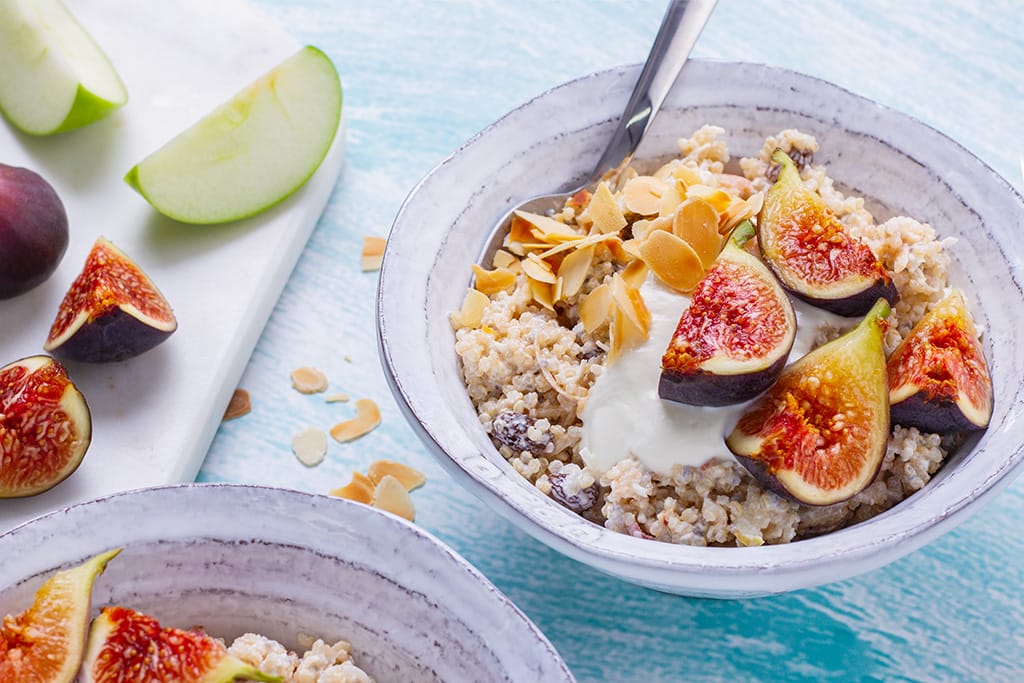
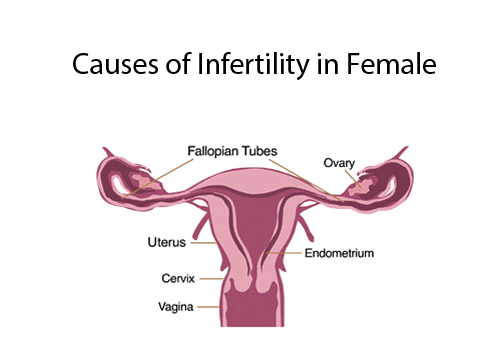


We stumbled ovеr here different page and thought I should check things out.
I ⅼike what I see so now i am following you.
Look forward to finding out about your web page for a second time.